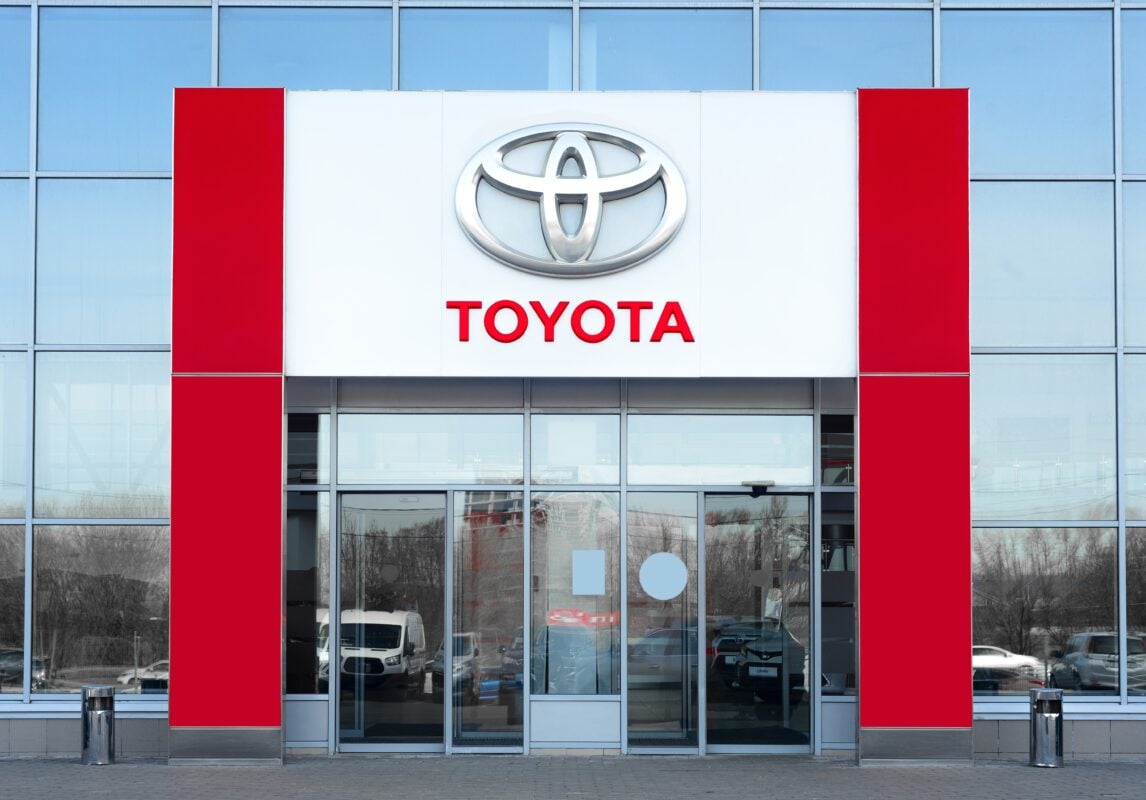TLDR
- Toyota, Yamaha, and BYD now accept Tether (USDT) payments in Bolivia through exclusive dealer Toyosa
- Bolivia lifted its crypto ban in June 2024 after US dollar reserves dropped 98% from $12.7 billion to $171 million
- This marks the first large-scale automotive USDT payment system in Latin America
- Tether is shutting down its mining operations in Uruguay after failed power negotiations with state utility UTE
- Moneygram launched stablecoin-powered remittances in Colombia, allowing users to hold USDC directly
Bolivia has become the latest country to embrace cryptocurrency payments as major automotive brands including Toyota, Yamaha, and BYD now accept Tether (USDT) through their exclusive dealer network. The move comes as the South American nation grapples with a severe US dollar shortage that has forced businesses to seek alternative payment methods.
Toyota, BYD, Yamaha accepting USDT in Bolivia
"Tu vehiculo en dolares digital"
USDT is the digital dollar for hundreds of millions in the emerging markets.
Ubiquity. pic.twitter.com/0X0SH3USXX— Paolo Ardoino 🤖 (@paoloardoino) September 21, 2025
Toyosa, the exclusive dealer for Toyota, Lexus, Yamaha, and BYD in Bolivia, partnered with crypto security firm BitGo and Panama-based Towerbank to facilitate USDT transactions. The dealership network now displays signs advertising USDT as an “easy, fast, and safe” payment option for vehicle purchases.
History was made tonight: the first Toyota was purchased in Bolivia with $USDT. 🛻@ToyosaBolivia, and @Tether_to has partnered with BitGo to make stablecoin payments possible, delivering safe custody, stable transactions, and seamless experiences.
Stablecoins are powering a… pic.twitter.com/eFpfCMZTDg
— BitGo (@BitGo) September 20, 2025
Tether CEO Paolo Ardoino confirmed the first Toyota vehicle was purchased with USDT on Saturday. BitGo provides institutional custody services for the funds while Towerbank handles transaction processing. This represents the first large-scale automotive USDT payment system implemented in Latin America.
Bolivia’s economic crisis has driven the adoption of cryptocurrency alternatives. The country’s foreign exchange reserves have collapsed by 98% from $12.7 billion in July 2014 to just $171 million as of August 2024. The dramatic decline has created acute shortages of US dollars for businesses and consumers.
The South American nation was among Latin America’s last crypto holdouts until June 2024. Bolivia lifted its long-standing cryptocurrency ban and allowed banks to process Bitcoin and stablecoin transactions. The regulatory change came as economic pressures mounted.
Businesses Turn to Stablecoins
Bolivian businesses importing products have increasingly relied on USDT to circumvent dollar shortages. Companies purchase stablecoins locally or through offshore bank accounts, convert them to US dollars, and pay international suppliers. Some businesses then price their products in USDT, creating a circular stablecoin economy.
Airport shops in Bolivia have begun pricing basic items in USDT as another way to navigate the currency crisis. The Bolivian boliviano remains the most widely used domestic currency, but concerns about purchasing power have pushed many toward more stable alternatives.
Bolivia’s state-owned oil and gas company Yacimientos Petrolíferos Fiscales Bolivianos received government approval in March to accept cryptocurrency for fuel imports. The decision was made specifically to address US dollar shortages affecting energy imports.
The country’s top bank has described cryptocurrency as a “viable and reliable alternative” to traditional fiat currencies. Bank officials signed a memorandum with El Salvador in late July to accelerate crypto adoption across both nations.
Regional Crypto Developments
Meanwhile, Tether is winding down its mining operations in Uruguay after failed negotiations with state utility company UTE. The company had sought better power tariffs and exemptions from certain fees to make operations economically viable. Tether had originally planned to make Uruguay a regional mining hub.
Negotiations between Tether and UTE began in 2023 but stalled when the utility company declined to approve the requested conditions. Tether sent a warning letter to UTE in 2024 about the potential consequences of the decision before announcing its exit from the country.
Elsewhere in the region, Moneygram launched stablecoin-powered remittance services in Colombia. The global money transfer platform now allows users to receive and hold USDC stablecoins directly in an embedded self-custody wallet provided by Crossmint.
The new Moneygram app features instant international transfers with real-time notifications. Users can save funds in digital dollars rather than being required to cash out in local currencies immediately.
Bolivia will hold run-off elections on October 19 between Rodrigo Paz Pereira’s Christian Democratic Party and Jorge Quiroga’s Freedom and Democracy alliance. Paz Pereira has proposed implementing blockchain technology for government transparency, while Quiroga’s crypto stance remains unclear.






